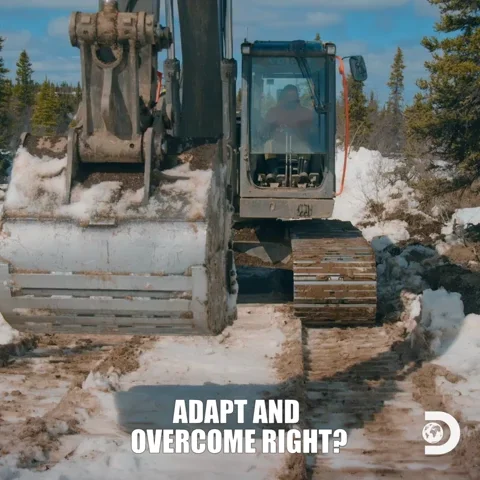
This logo isn't an ad or affiliate link. It's an organization that shares in our mission, and empowered the authors to share their insights in Byte form.
Rumie vets Bytes for compliance with our
Standards.
The organization is responsible for the completeness and reliability of the content.
Learn more
about how Rumie works with partners.
Let's face it...work can be stressful.
From navigating difficult clients or coworkers to managing deadlines while juggling having a personal life, it can be extremely challenging.
Enter resilience, the ability to adapt to change and overcome obstacles. It's a key factor in achieving success in the workplace.

There was a time early in my teaching career when I faced an overwhelming workload, tight deadlines, and the challenge of balancing multiple projects all at the same time.
I had to navigate shifting priorities, support students, and still maintain high standards at work. I realized that simply managing stress wasn't enough — I needed to build resilience.
By adopting a growth mindset, prioritizing my self-care, setting realistic goals, and becoming more adaptable and flexible, I was able to bounce back from setbacks and come out stronger, ultimately delivering results I could be proud of at work.
Exploring Resilience
Quiz
You are resilient. What key trait do you possess when facing a challenge?
Resilient people don't avoid or ignore challenges — they face them head-on. Instead of getting overwhelmed or stuck, they focus on finding solutions and adapting to the circumstances.
The Benefits of Resilience

Resilience has been key to my professional growth. By embracing challenges and adapting to change, I’ve experienced increased job satisfaction and mental well-being, while also enhancing my productivity and leadership abilities.
This mindset has empowered me to approach obstacles with confidence and innovate new solutions, making me feel more rewarded in my career.

During a challenging period early in my teaching career, I realized I needed to cultivate resilience to thrive. By adopting a growth mindset and setting realistic goals, I was able to navigate obstacles with confidence and emerge stronger, both personally and professionally.
You can implement the strategies below to build your resilience at work.
Develop a Growth Mindset
A growth mindset is the foundation of resilience. Research has shown that challenges and failures are opportunities for growth and learning, not only for children but also for adults in the workplace.
Develop a growth mindset by learning something new or self-reflecting.
As a teacher, I cultivate a growth mindset by embracing challenges and viewing mistakes as opportunities to learn. I encourage my students to do the same, creating an environment where perseverance and curiosity thrive.

Prioritize Self Care
Resilience begins with taking care of yourself. Make self-care a priority to enhance your well-being and capacity to handle workplace pressures.
— Cheri Rainey, leadership trainer
Prioritize the well-being of your mind, body, and emotions.
I prioritize self-care by setting clear boundaries and leaving work at school, ensuring I have time to relax and recharge. This balance allows me to return to the classroom refreshed and more present for my students.
 Photo by Anthony Tran on Unsplash
Photo by Anthony Tran on UnsplashSet Realistic Goals and Reassess
When creating a new unit, I start by breaking it down into smaller tasks, like outlining the key concepts, selecting resources, and designing assessments.
By tackling each component one at a time and celebrating when I complete each step, I can stay focused and energized, preventing feelings of overwhelm and ensuring a more rewarding experience.
 Photo by Alexa Williams on Unsplash
Photo by Alexa Williams on UnsplashPractice Adaptability and Flexibility
Quiz
An employee new to her job is experiencing stress, and is overwhelmed with everything her new job entails. Which strategy below involves breaking larger tasks into smaller, manageable steps?
Establishing realistic goals and continuously reassessing them can help prevent feelings of overwhelm and burnout.
Take Action

This Byte has been authored by
Rebecca Morse
Instructional Designer and Educator
MS
